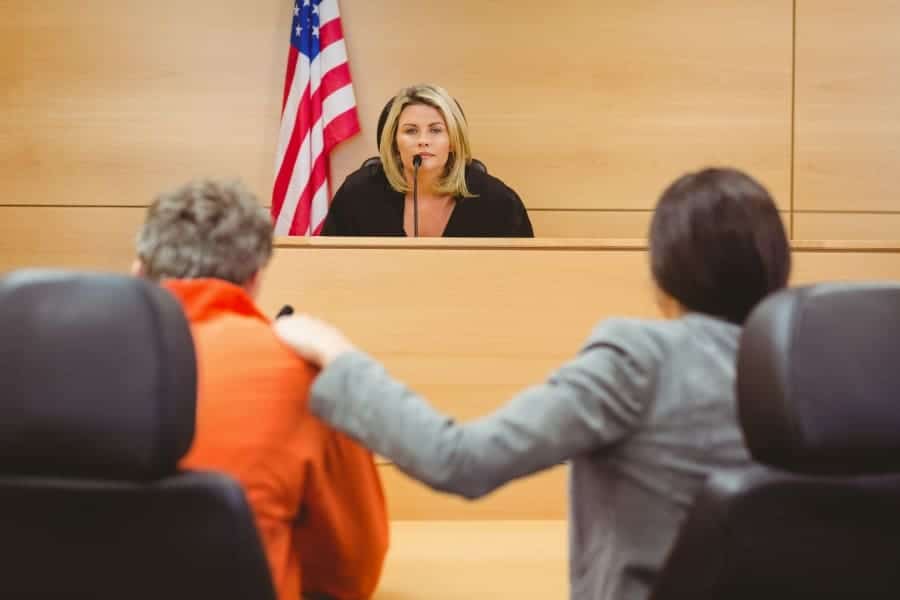Nearby Probation Lawyers in St. Petersburg Florida
Florida Attorneys
Serving You and The State of Florida
What is probation defined as in Florida?

It is an alternative to spending time in jail or prison, but that does not mean it should be taken lightly. Violating the terms of your probation can have consequences that include:
- The revocation of your probation
- Being charged with the separate and additional crime of violating the terms of your probation
If you think it is likely that you may be in violation of your probation, contact the probation attorneys at The Lopez Law Group as quickly as possible. A skilled Florida probation lawyer can often work on your behalf to restore your probation and help you avoid additional charges against you.
Violation of Probation in Florida
In Florida, probation is often offered to offenders instead of incarceration. The judge determines the length of time someone spends on probation in the criminal case.
When an individual is placed on probation, they are given “terms of supervision” that they must abide by under Florida law. The terms of an individual’s supervision can vary wildly and depend on the nature of the initial charge, what the prosecution asks for, whether the individual has a previous record, and what the judge deems appropriate for the crime.
A failure to abide by the “terms of supervision” or “terms of probation” outlined in your case can result in a technical violation of probation. Such violations can result in the probationer being sentenced on the original charge for which he or she was granted probation. A violation of probation is also, in and of itself, a separate criminal charge. The charging of a violation of probation as a separate and additional charge is at the discretion of the trial court that imposed probation.
Standard terms of supervision:
Some features are common “terms of supervision” that almost everyone on probation will have to abide by, while others are used less commonly, depending on the above factors. The terms of probation might include:
- The imposition of community service hours—meaning the individual must complete a set number of community service hours during the term of their probation.
- Restrictions on the use of mind-altering drugs—meaning you can not use medications or illicit substances, outside regular prescription medication, or sometimes alcohol, during the term of your probation.
- Required drug and alcohol screenings
- Restitution to victims—money paid directly to the victims of your crime, or an amount that must be paid to a victim support fund.
- Fees and fines—the individual on probation will have to pay a fee for all required screenings, and often have to pay a fee each month to their probation supervisor.
- The requirement to stay within the county where the individual is serving probation—most people on probation are required to have permission from their probation officer before leaving the county for any reason.
- Probationers are required to seek court approval for any travel outside the state of Florida while on probation.
- While on probation, you will likely be required to schedule visits with the Florida Department of Corrections for meetings with your probation officer.
- You will probably be informed that you cannot change addresses without the permission of your probation officer.
- If you are unemployed, the state of Florida can mandate that you make a diligent effort to seek employment.
- A mandatory curfew is possible, depending on the judge and the nature of your crime.
What constitutes a violation of the terms of probation in FL?
As you can see, with all the possible listed conditions of probation, it is possible to violate your probation without intent. You could have a job that needs you to work over, but doing so will put you in violation of your curfew. You may find it hard to get a job, and that makes it challenging to keep up with your payments for fines or restitution.
Your probation officer may want you to get a job, but then have a complaint when you are unable to schedule your community service hours. Though you have to abide by the terms of your probation, there are ways that your probation officer can make it easier or more difficult for you to comply with the terms of your probation.
Whatever the reasons you violate the terms of your probation, the easiest route is to stay in close contact with your probation officer about any conflicts or mistakes that arise. However, the probation officer does have significant latitude in whether he or she pursues a violation of probation charge.
If you feel that your probation officer is unreasonable in working with you on the terms of your probation, your only recourse is to seek legal counsel. Retaining legal counsel may force your probation officer to abide by the spirit of the law, which clearly is to avoid incarceration and keep individuals in the community when possible.
Telling your reasons for violating your probation to a judge will not help. It would help if you had legal counsel and a legal explanation, not just an excuse. Your freedom should not depend on the temperament of your probation officer or the probation officer’s relationship with the judge. If you have unwittingly violated your probation due to work constraints, or difficulty attending to community service, make sure you have the security of an attorney who knows your rights and can help you navigate the criminal justice system.

Florida holds that there are two types of probation violations:
- Technical—when a probationer violates either specific or general conditions of their probation. Technical violations include things like:
- The failure to pay court costs or fines
- A failed drug test—under Florida law, a diluted drug test, though technically negative, can count against you. (Wagle v. State, 951 So.2d 114 (Fla. 5th DCA, 2007).
- Non-compliance with court-ordered programs such as mental health counseling, anger management or drug rehabilitation
- Missing or arriving late to appointments with your probation officer
- Substantive—substantive violations occur when an individual commits a new crime during the time that they are on probation. Being found guilty of committing a crime while you are on probation for another crime is a clear and substantive violation of the terms of your probation.
Violation of probation sentences can have severe repercussions under Florida law. The harsh consequences start with an arrest with a warrant that has a “no bond” clause. You will be in jail until a hearing can be set, and your punishment determined by a trial court judge.
If you are arrested or charged with a crime while you are on probation for another crime, it is crucial that you contact a criminal defense attorney, like those at The Lopez Law Group, as quickly as possible.
The consequences of violating probation
When considering whether a probationer violates the terms of supervision, the courts must consider whether the violation was “willful and substantial.” In determining whether a violation was both willful and substantial, the court will look at the facts of each case. The state must prove “willful and substantial” which is outlined in “Thompson v. State, 890 So. 2d 382, 383” (Fla. 2d DCA, 2004)
If you are under the supervision of a probation officer and you believe you may have violated the terms of your probation, do your best to address it as quickly as possible. If you can get the opportunity to meet with your probation officer and discuss the potential violation, they might have the ability to overlook the violation. Two entities hold power to find you in violation of probation:
- The probation officer assigned to your case
- The judge in the trial court that imposed probation instead of incarceration
If the probation officer is willing to work with you and overlook the violation because you dealt with it responsibly, then often, the judge doesn’t have to find out about the offense. However, that decision rests solely with your probation officer.
Once your probation officer files a report, a hearing will be set. It is important to note that evidentiary standard for a violation of probation hearing is much lower than the “beyond a reasonable doubt” applied to jury trials. Because the standard is lower, it is much easier for the state of Florida to prove the case for violation of probation, and you can be sentenced for both the original charge and the charge of violating your probation.
What to do if you are aware that your probation officer is likely to file a report to the court
The nearby St. Petersburg probation violation attorneys at The Lopez Law Group are familiar with the terms of probation and how the probationary system in Florida works. We are ready, willing, and able to help you defend yourself against a potential violation of probation.
Call us as soon as possible at (727) 933-0015 for a consultation. We will do our best to explore each of your options to avoid going to jail for violating your probation.
Practice Areas
What Our Clients Say
A Godsend
Mr. Lopez was a Godsend and really helped me with my situation. Him and the entire firm were very diligent and helped speed the early stages of the process along due to a pressing situation. Throughout my experience working with the firm, they were always responsive and available any time I had a question or wanted to check on the state of affairs. Hopefully I won’t have to recommend Lopez Law Group to my friends or family, but if those unfortunate circumstances arise then there’s only one name I would trust. Thank you again for all your help!
Lopez Law Group Can See You Through Cases Like:
Don't See What You Need?
Lopez Law Group
700 7th Ave N, Suite A,
St. Petersburg, FL 33701
P: 727-933-0015
Business Hours
Mo, Tu, We, Th, Fr
Schedule a Call Back
Book a Consultation






















